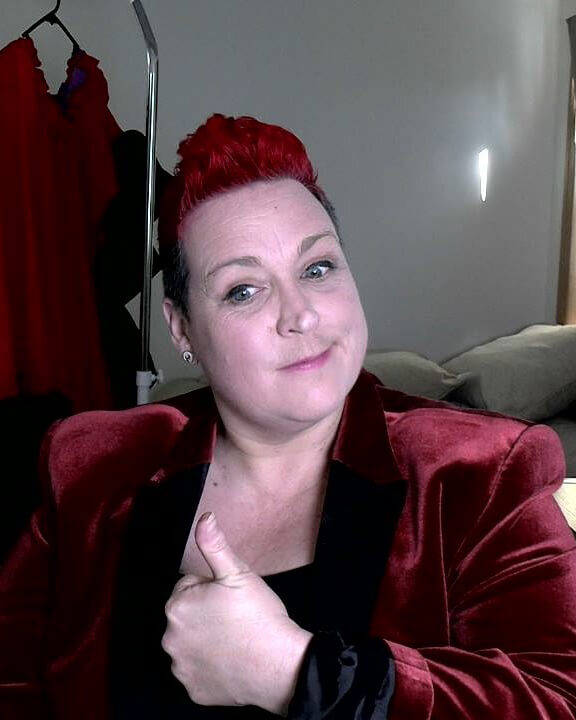by Jacci Brady (Pillar)
I remember being so proud following my family tradition into military service in 1988. Watching the Minister for Defence now, I hold old PTSD at bay, revisiting constant discrimination, sexual assault, and harassment. I observe Brittany Higgins enduring what my female colleagues and I experienced 30+ years ago, on rinse and repeat. Being in the presence of thousands marching in solidarity at the Women’s March 4 Justice reminded me of the power of our stories, of our resolve.
Even so, my heart still races at policy and press conference non-apologies; at the veteran mental health program announcement, followed by the ‘unmute yourself’ campaign, in a climate of everyday political sexism and ableism.

I am reminded of the most frequent stereotype I face as a neurodiverse, non-binary social scientist – the sexism expressed at the knowledge I served as an avionics technician and have an Australian Defence Medal.
As one of a small group of the first women aircraft technicians in Australia, the news cycle is a current reminder of the racism and sexism of my 1990’s military service. The lack of care and disgusting regard for Afghan women and children described only as ‘collateral’. The repulsive backlash to the removal of restrictions upon defence force recruitment related to homosexuality.
Watching parliament’s behavioural double standards reminds me of being threatened with disciplinary charges for ‘conduct unbecoming of an airwoman’ for arbitrary infringements of decorum that men I served with never received. By discharge, I had stopped fighting the internal war for ethics with the men I served with.
I never chose to be silent; I didn’t need to ‘unmute’, I needed those responsible to be held accountable. A military chaplain told me not to complain, ‘best forgotten and move on and get married’. When I left the military, I had layers of trauma and had stopped being the outspoken and articulate person I once was for most of my 20’s. In my 30’s I returned, stronger than before.
This is known as fawning; it is the biological addendum to fight, flight, flee and fawn.
This is what violence does and is intended to do, turn us to fawning silence to survive, a tactic in a merciless game of patriarchal power and control. When we don’t report, or can’t report, or even take time to report, we are criticised for fawning. We are criticised for a biological survival mechanism, and it is the type of victim blaming most visible in public conversations recently.
I wasn’t aware that I was autistic during my service, and I broke myself trying to fit in, battled on through with sensory processing experiences like mine. There was not awareness that my ability to ‘piss off’ the men around me was organic honesty and my treatment was worsened by the negative perception of my sex.
The ‘unmute’ campaign is painful for the autism community. The notion of being ‘mute’ can relate to outdated medical terminology used to justify cruel intervention in lieu of understanding different communication as organic or trauma-related. Many of us are non-speaking and others like me are on a different place on the spectrum – we frequently hyper-verbalise in ways able-bodied people may misinterpret. Regardless, the government’s use of ‘unmute’ is clumsily ableist.
I’ve kept lists of all the women and people of colour who invented aeronautical and aerospace technologies, so I can cite them in response to sexism and racism. I’ve learned to cite archaeological and historical evidence that women have always been part of the world’s fighting forces. But I’m done with this emotional labour. I am calling for system-wide change towards genuine diversity in our parliamentary representation.
It’s important to keep the pressure on and keep talking about this, as a collective. While I think some of us are saying ‘why are we still protesting this?’, the opposite is also true with many saying ‘look what we have achieved’. The reality of the situation is complex.
Together we will force these old stereotypes off to die. I may have felt temporarily paused when leaving the military, but I have fought for justice ever since. I do not speak for those I cannot speak for, instead, I fight for inclusion. We are not passive; we have always fought, and we always will.
Jacci Brady (aka Jacci Pillar) is an anthropologist currently doing PhD research in the political science of Australian online satire, examining if it influences political engagement with difficult topics. They also write and do political and disability pride-based comedy (on occasion) and have a deep fondness and appreciation for human storytelling. They live in Melbourne with their assistance dog, Pepper the greyhound.




